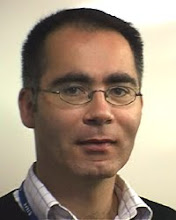The Centre for European Reform has released a very interesting collection of pieces on innovation in Europe which highlights all the difficulties in talking about and supporting innovation. It has contributions from John Kay, Maire Geoghegan-Quinn and Amar Bhide amongst others, so does not suffer from a single perspective on the issues.
As discussed here previously, there is continuing confusion over what we all mean by innovation (still!) which is acknowledged in the collection. However according to one of the editors, Philip Whyte, there is a tension between those who study innovation (academics or those in think tanks) and those who have to develop and implement policies in support of innovation (policy makers in general). He claims academics "... point out that Schumpeter's famous description of innovation as a process of 'creative destruction' has two components that are inextricably intertwined. One cannot embrace creation (that is, the emergence of innovative young firms) without accepting destruction (letting uncompetitive incumbents go to the wall). Yet policy-makers ... want innovation, but without the accompanying economic dislocation and social disruption."
I'm not sure that such a tension really exists. Most policy makers understand that firms fail at somewhere about 10% of firms per year in developed economies and that a constant supply of new firms, let alone innovative new firms, is required for growth. Perhaps the policy maker has two roles, to support innovation to occur and to soften some of the transitional pains that come with the changes innovation brings in markets and in society?
Perhaps the biggest problem is one of timescales and incentives - academics have years, policymakers tend to have days. As Sam says in the West Wing "... we play with live ammo around here ..."
Subscribe to:
Post Comments (Atom)

Agree, need more constructive scepticism, something which is not just the realm of physicists!
ReplyDeleteDisproportionate number of STEM graduates have been lured into finance sector and too many policy makers drawn from non technical disciplines. This has left a vacuum of ability to understand and critically evalute the modern day economy.
Recent crash proves that a grounding in medieval history is not essential for running a high tech economy. Having said that riding a jet propelled starship enterprise captained by theoretical physicists would be pretty hairy too.
Fifty years on Snow’s two cultures have yet to meet.